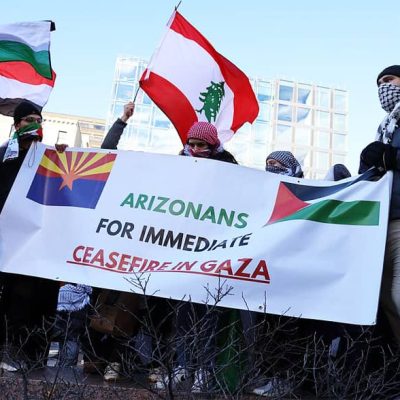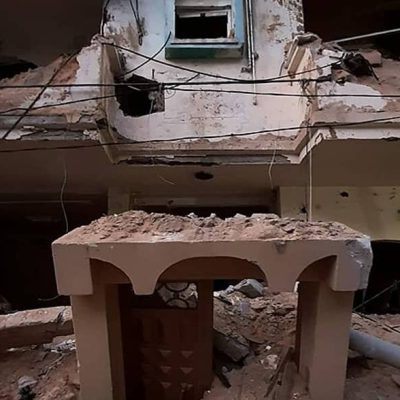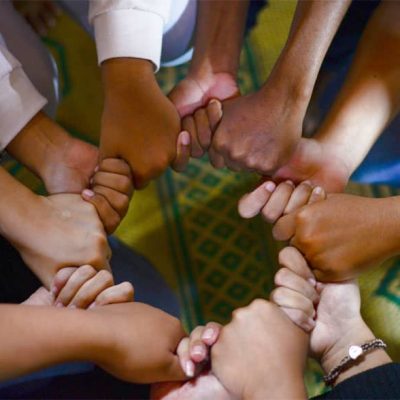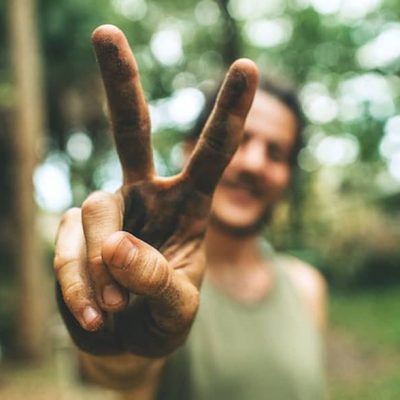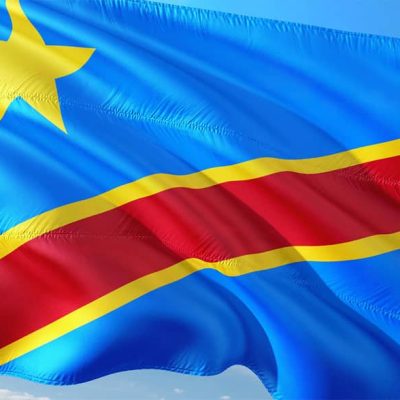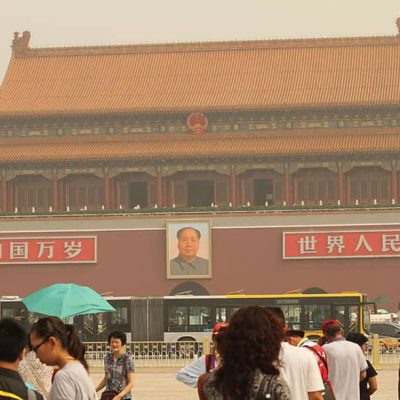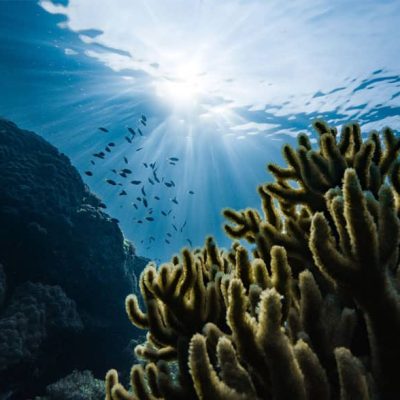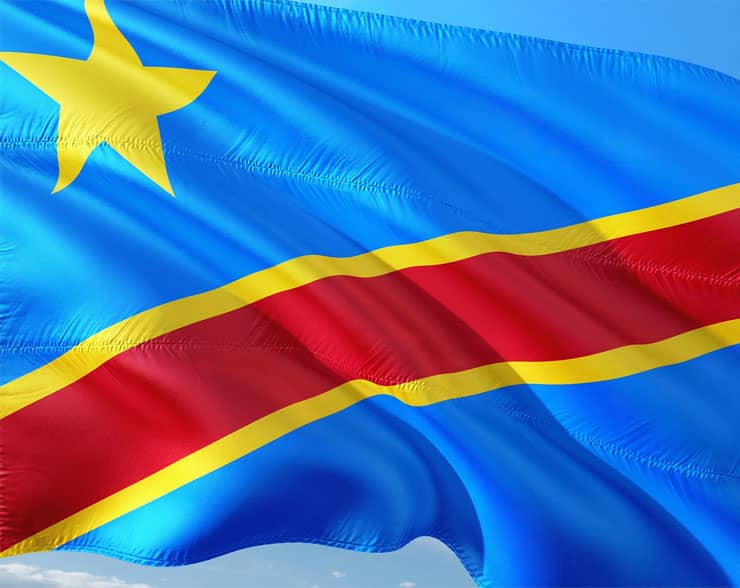 Appeals
Appeals
Democratic Republic of Congo: Sky Getting Darker.
The armed conflict in the eastern area of the Democratic Republic of Congo (RDC) on the frontier with Rwanda seems to be growing worse and is impacting in a negative way the lives of people. The current fighting adds to the insecurity of the area and has virtually stopped cross-frontier activities largely done by women small traders. As a result, the price of existing food supplies has increased greatly, and shortages are to be feared.
The current armed conflict is among a Tutsi-led militia, the Mouvement du 23 Mars (M23), the forces of the RDC government and different ethnic militias. The President of the RDC, Felix Tshisekedi, sponsored the creation of local militias to help government soldiers, but the government does not control these militias. The United Nations (UN) Stabilization Mission in the Congo (MONUSCO) which has been in the RDC since 1999 is the largest UN peacekeeping force with some 15,000 members.

U.S. Secretary of State Michael R. Pompeo meets with Democratic Republic of the Congo President Felix Tshisekedi on the margins of the NATO Ministerial at the U.S. Department of State in Washington, D.C., in Washington, D.C., on April 3, 2019. [State Department photo by Michael Gross/ Public Domain]. By U.S. Department of State from United States, Public domain, via Wikimedia Commons.

Helmet Icon of United Nations Peacekeeping Logo. By United Nations Department of Peacekeeping Operations, Public domain, via Wikimedia Commons.
A theoretical UN sponsored arms embargo.
However, it has been unable to halt the fighting or to protect civilians. In fact, the area of conflict has grown and engendered a catastrophic humanitarian crisis, causing the displacement of more than one million civilians in North Kivu Province. The M23 has recently launched attempts to win allies in South Kivu Province, in particular the armed group Twirwaneko, with the objective of opening a front in South Kivu.
The government of Rwanda has become increasingly involved in the Kivu conflict with direct intervention by the Rwanda Defense Force (RDF) and, despite a theoretical UN sponsored arms embargo, with weapons and other military equipment. The M23 is also fighting against the Forces démocratiques de Libération du Rwanda (FDLR) a Hutu-led group hostile to the government of Rwanda.
Non-State actors and armed militias such as those in the RDC.
Recent attacks by M23 on populations associated with, or presumed to support the FDLR, have grown. Incidents of rape, including gang rape, by M23 combatants are prevalent but are not limited to the M23. The armed conflict is colored by a tense political situation with general elections, most significantly a presidential election, scheduled for December 2023.
The increased violence indicates the need for local non-governmental peacebuilding efforts which can be also facilitated by international nongovernmental organizations (NGOs). There is also a greater need to build respect for International Humanitarian Law (IHL). When the framework of current IHL as drafted in the 1948 Geneva Conventions in light of the experiences of World War II, the focus was upon the actions of national armies. Today, much violence and strife is due to non-State actors and armed militias such as those in the RDC.
There are two major weaknesses in the effectiveness of IHL.
- The first is that many people do not know that it exists and that they are bound by its norms. Thus, there is an important role for greater educational activities, the dissemination of information to the wider public, specific training of the military, outreach to armed militias, and cooperation with a wide range of NGOs.
- The second weakness is that those violating IHL are rarely punished. Few soldiers are tried or court-martialed. This weakness is even more true for non-state militias and armed groups. There is yet much to do for the realization of the rule of law.
Note.
- For useful guides to International Humanitarian Law see: D. Schindler and J. Toman, The Laws of Armed Conflict (Martinus Nihjoff Publishers, 1988).
- H. McCoubrey and N.D. White, International Law and Armed Conflict (Dartmouth Publishing Co. 1992).
Prof. René Wadlow is President of the Association of World Citizens.

President, Association of World Citizens (AWC).
Estudied International relations in The University of Chicago.
Estudied Special Program in European Civilization en Princeton University
Here are other publications that may be of interest to you.
Burma’s Crumbling Junta
February first marked the anniversary of the military coup which overthrew the government of Aung San Suu Kyi in 2021. She was in practice the leader of the government but…
Preventing the Expansion of the Gaza Conflict: Are Peace Brigades a Possibility?
Antony Blinken, the U.S. Secretary of State, has been again in the Middle East working to prevent the violence of the Gaza Strip of spreading to much of the area. …
World Citizens Call for an Inmediate End to Hostilities between Israel and Hamas, and for a Genuine Peacebuilding Effort in the Middle East.
Featured image: The impact of the Israeli bombing on a civilian building in Gaza (2021). By Osama Eid, CC BY-SA 3.0 https://creativecommons.org/licenses/by-sa/3.0, via Wikimedia Commons. The AWC, a Nongovernmental Organization…
World Humanitarian Day: A Need for Common Actions.
Featured Image: Photo by Wylly Suhendra on Unsplash. The United Nations General Assembly has designated 19 August as “World Humanitarian Day” to pay tribute to aid workers in humanitarian service…
Peace Planners: Awake!.
Featured Image: Photo by Eddie Kopp, Unsplash. The recent NATO Summit in Vilnius is an indication that the war planning community is busy at work in the spirit of Von…
Track Two Efforts Needed to Reduce China-India Frontier Tensions.
Featured Image: Arunachal Pradesh – India. Photo by Unexplored Northeast, Unsplash. There has been a constant buildup of military forces by the governments of both India and China along their common frontiers. …
Democratic Republic of Congo: Sky Getting Darker.
Photo by jorono, Pixabay. The armed conflict in the eastern area of the Democratic Republic of Congo (RDC) on the frontier with Rwanda seems to be growing worse and is…
World Refugee Day.
June 20 is the United Nations (UN)-designated World Refugee Day; marking the signing in 1951 of the Convention on Refugees. The condition of refugees and migrants has become a “hot”…
4 June: Memories of Tiananmen Square.
4 June makes the security forces in China somewhat uneasy, especially in Hong Kong where, in the past, there were large memorial meetings tp remind people of 4 June 1989…
International Day of the Oceans.
Featured Image: Photo by Marek Okon, Unsplash. Progress on Asian Maritime Delimitations Needed. 8 June has been designated by the United Nations General Assembly as the International Day of the Oceans to…


